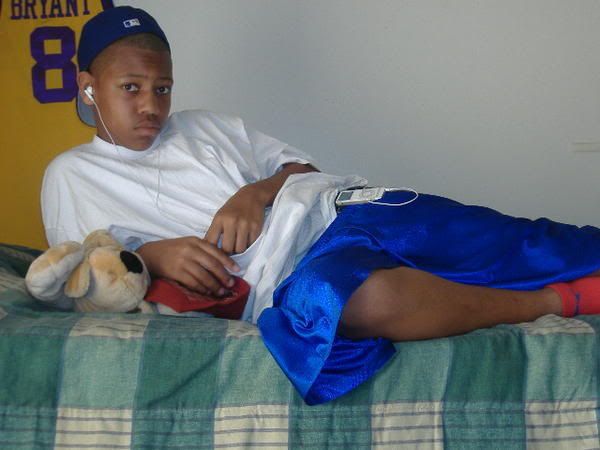1. What does DVD stand for?digital video device
2. What is a dingbat?special characters
3. What is a handshake?a modem
4. What is a home page?An introductory screen on the World Wide Web, used to welcome visitors
5. What handles can you not hold in your hand?Little squares at the edges and corners of a selected graphic on your screen.
6. What was ENIAC?
7. What contribution did Ada Byron make to computing? bank of blinking lights indicate the mysterious processes going on within
8. What kind of wafers are used at Intel to make computer chips?by programming it or customizing it, there's a chip inside.
9. What do they call the suit that cleanroom technicians must wear while making computerchips?
10. What does modem stand for anyway? (Search the site)A modem is a device or program that enables a computer to transmit data over
11. I think the person who coined these computer terms must have been hungry.
Use this link to answer all parts of question 11:
http://Whatis.techtarget.com/definition/0,289893,sid9_gci213816,00.html
What is a bit?How many bits in a byte?How many nibbles in a byte?A bit (short for binary digit) is the smallest unit of data in a computer. A bit has a single binary value, either 0 or 1. Although computers usually provide instructions that can test and manipulate bits, they generally are designed to store data and execute instructions in bit multiples called bytes. In most computer systems, there are eight bits in a byte. The value of a bit is usually stored as either above or below a designated level of electrical charge in a single capacitor within a memory device.
Half a byte (four bits) is called a nibble. In some systems, the term octet is used for an eight-bit unit instead of byte. In many systems, four eight-bit bytes or octets form a 32-bit word. In such systems, instruction lengths are sometimes expressed as full-word (32 bits in length) or half-word (16 bits in length).
12. The ARPANET 's development began in 1966. It was an experiment to connect universities to share information. What do we call this today?
13. In what year was the first World-Wide Web software created by Tim Berners-Lee? (Hint search in the timeline only)
14. Project Gutenberg puts on the Internet public domain literature and information.What was the first document posted?
15. When were floppy disks introduced? (hint they were first called magnetic disks)
16. How many megabytes of data can a factory made audio CD hold?
17. What do the letters CD-ROM stand for?
18. Name three computer peripherals.
19. What does GUI (pronounced "goo-ey") mean?
20. What is an advantage of the Dvorak keyboard?
21. What is a computer virus?
22. How did Marcian Hoff's invention change computers? Look him up.23. What mammal, other than humans, uses a computer?
2. What is a dingbat?special characters
3. What is a handshake?a modem
4. What is a home page?An introductory screen on the World Wide Web, used to welcome visitors
5. What handles can you not hold in your hand?Little squares at the edges and corners of a selected graphic on your screen.
6. What was ENIAC?
7. What contribution did Ada Byron make to computing? bank of blinking lights indicate the mysterious processes going on within
8. What kind of wafers are used at Intel to make computer chips?by programming it or customizing it, there's a chip inside.
9. What do they call the suit that cleanroom technicians must wear while making computerchips?
10. What does modem stand for anyway? (Search the site)A modem is a device or program that enables a computer to transmit data over
11. I think the person who coined these computer terms must have been hungry.
Use this link to answer all parts of question 11:
http://Whatis.techtarget.com/definition/0,289893,sid9_gci213816,00.html
What is a bit?How many bits in a byte?How many nibbles in a byte?A bit (short for binary digit) is the smallest unit of data in a computer. A bit has a single binary value, either 0 or 1. Although computers usually provide instructions that can test and manipulate bits, they generally are designed to store data and execute instructions in bit multiples called bytes. In most computer systems, there are eight bits in a byte. The value of a bit is usually stored as either above or below a designated level of electrical charge in a single capacitor within a memory device.
Half a byte (four bits) is called a nibble. In some systems, the term octet is used for an eight-bit unit instead of byte. In many systems, four eight-bit bytes or octets form a 32-bit word. In such systems, instruction lengths are sometimes expressed as full-word (32 bits in length) or half-word (16 bits in length).
12. The ARPANET 's development began in 1966. It was an experiment to connect universities to share information. What do we call this today?
13. In what year was the first World-Wide Web software created by Tim Berners-Lee? (Hint search in the timeline only)
14. Project Gutenberg puts on the Internet public domain literature and information.What was the first document posted?
15. When were floppy disks introduced? (hint they were first called magnetic disks)
16. How many megabytes of data can a factory made audio CD hold?
17. What do the letters CD-ROM stand for?
18. Name three computer peripherals.
19. What does GUI (pronounced "goo-ey") mean?
20. What is an advantage of the Dvorak keyboard?
21. What is a computer virus?
22. How did Marcian Hoff's invention change computers? Look him up.23. What mammal, other than humans, uses a computer?


0 Comments:
Post a Comment
<< Home